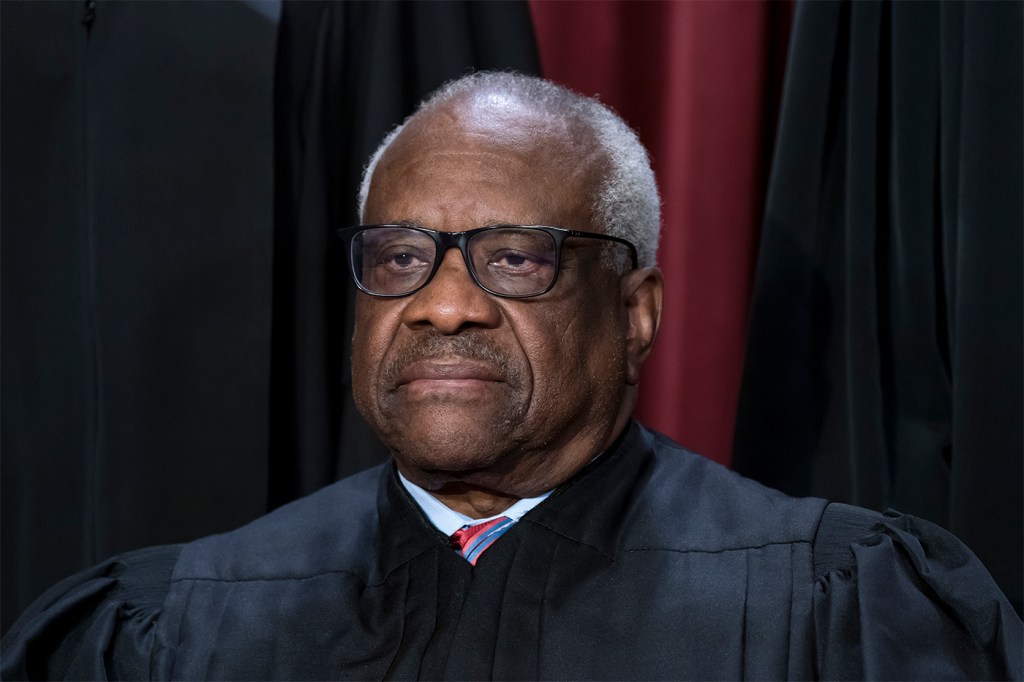Should Clarence Thomas recuse himself in the Colorado case?

With the Colorado decision disqualifying former President Donald Trump from running for high office because he allegedly engaged in insurrection likely headed to the Supreme Court, a potential conflict of interest is bubbling.
The much-discussed Colorado Supreme Court ruling said that Trump incited an insurrection on Jan. 6, 2021, when a mob of his supporters attacked the U.S. Capitol and that, therefore, the former president cannot be on the ballot in that state because he violated Section 3 of the 14th Amendment — a provision dealing with insurrectionists.
Editor’s Picks
With a review all but assured, could Clarence Thomas — whose wife, Ginni, exchanged texts with White House Chief of Staff Mark Meadows on Jan. 6, encouraging him to stand firm with Trump as he claimed the election was stolen — preside over the case, or should he recuse himself?
Northeastern law experts generally agree: Thomas should recuse himself, but probably won’t.
“He absolutely should [recuse himself], but I don’t think he will,” says Jeremy R. Paul, a professor of law and former dean of the Northeastern University School of Law. “But there’s no question that he should.”
Generally, the court’s recusal standards have not been accompanied by accountability mechanisms, and the new Supreme Court ethics code — adopted in November — doesn’t make recusal mandatory, according to Martha F. Davis, university distinguished professor of law at Northeastern, who teaches constitutional law and human-rights advocacy.
The ethics code is supposed to dispel “the misunderstanding that the justices of this court, unlike all other jurists in this country, regard themselves as unrestricted by any ethics rules.”
Davis says the potential conflict facing Thomas in the Supreme Court’s review of the Colorado case has more to do with Ginni Thomas’ potential criminal exposure related to her involvement in the insurrection than it does the mere expression of political views.
In other words, the high court’s spouses and family members should be allowed to engage in political activism, so long as it doesn’t cross over into potential criminal conduct, or generate financial entanglements that could lead to conflicts of interest. The justices themselves are supposed to exercise caution with respect to their own political activity.
Ginni Thomas, having so far escaped criminal scrutiny, still puts her husband in an ethical bind, Davis says.
“The potential criminal exposure of Ginni Thomas creates a concern for her, and an interest that [Clarence] Thomas would have in ruling in favor of Trump’s petition in the case,” says Davis, who teaches legal ethics.
Dan Urman, director of the law and public policy minor at Northeastern, who teaches courses on the Supreme Court, says the ethics code is not a legally enforceable set of rules, and are merely the outlines of an honor code.
Featured Posts
But the set of principles articulated within the new document does touch on recusal standards and “the appearance of impropriety.” “The code isn’t enforceable — it represents a ‘pledge’ or commitment by the justices, all of whom signed it,” Urman says.
Still, Urman believes Thomas should recuse himself.
“Thomas should recuse from cases involving Trump’s efforts to overturn the results of the 2020 election, because of his wife’s well-documented direct involvement in these efforts,” he says.
“One standard of recusal is appearance of impropriety, and it’s hard to see how this looks appropriate and makes the court seem ‘above’ or outside of politics,” Urman says, noting, however, that he doesn’t think the justice will recuse himself in the 14th Amendment case.
Thomas has been under fire in recent weeks and months. A recent ProPublica report purports to show how the court’s longest-tenured conservative justice lobbied members of Congress for a raise, and to remove a ban on justices giving paid speeches (“honoraria limitations”). Previous reporting from the nonprofit news organization showed how Thomas accepted lavish gifts from Republican mega donor Harlan Crow.
Federal judicial ethics clearly draws a bright line with respect to the types of conflicts Thomas is accused of engaging in, Paul says.
“There’s no evidence to suggest that he has any appreciation for any of the appearances of conflict” that have surrounded his tenure on the high court, Paul says.










